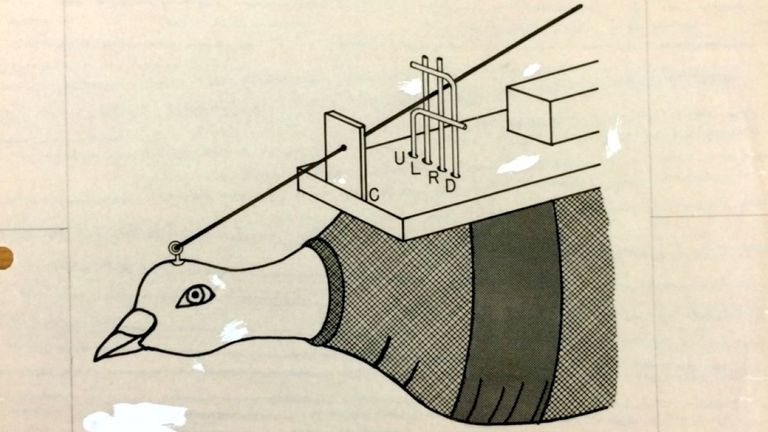A Second World War project which involved training pigeons to pilot bombs has won this year’s spoof Nobel peace prize.
The Ig Nobel gongs – awarded annually by the science humour magazine the Annals of Improbable Research – celebrate unusual areas of research that “make people laugh, then think”.
Professor Burrhus Frederic Skinner, a psychologist at the University of Minnesota in the US, received the posthumous gong for his work on Project Pigeon, where he was able to teach pigeons to guide missiles with some success.
But the project never took flight because of scepticism from the US military and government officials.
However, Prof Skinner stood by the research, writing in a summary of the project published in 1960: “Call it a crackpot idea if you will. It is one in which I have never lost faith.”
The anatomy prize went to a team of scientists in France who wanted to investigate whether hair on the heads of most people in the Northern Hemisphere swirled in the same direction – clockwise or anticlockwise – as those from the Southern Hemisphere.
The chemistry award was won by a research team who used a lab technique to separate drunk and sober worms.
And US-based scientists Fordyce Ely and William E Petersen were awarded the biology prize for exploding a paper bag next to a cat standing on the back of a cow with aim to understand more about how and when cows spew their milk.
The two found that cows temporarily stopped ejecting milk when frightened.
Other awards presented at the Massachusetts Institute of Technology in Boston, US, on Thursday, included the physiology prize for discovering that many mammals are capable of breathing through their anus and the physics prize for demonstrating the swimming abilities of a dead trout.
Meanwhile, the demography gong went to Dr Saul Justin Newman, senior research fellow at University College London, who discovered some people with the longest lives hailed from places that had poor recordkeeping.
Dr Newman said he became interested in investigating data on humans who live longer than most after debunking two scientific papers about extreme human ageing.



























